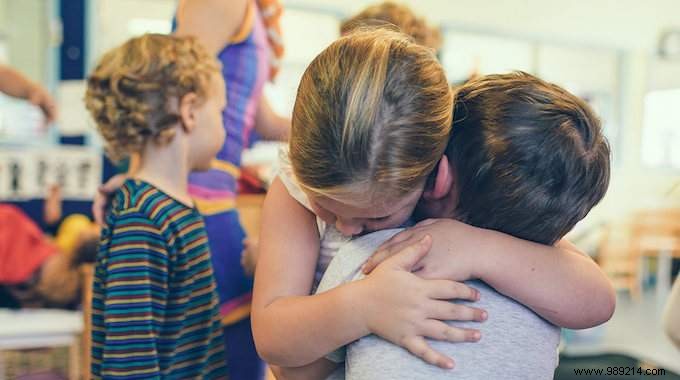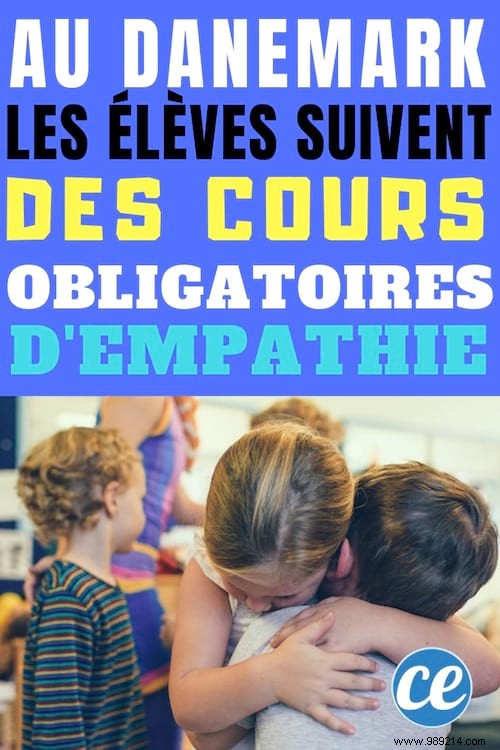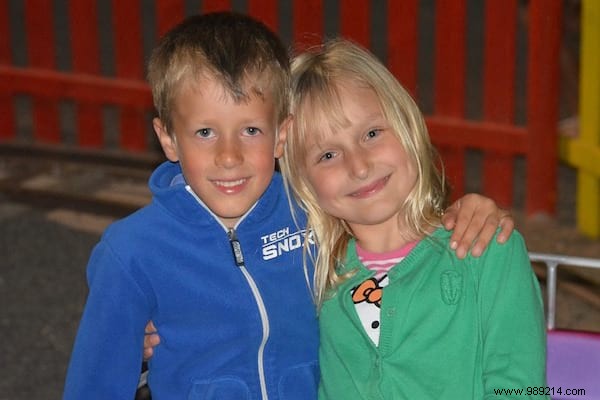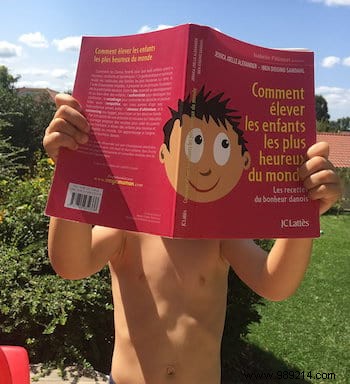
Denmark is one of the three countries where people livethe happiest in the world .
And it is precisely in Denmark that empathy courses are taught to children aged 6 to 16.
And no question of skipping, because these courses are compulsory!
What if this example served as a model for us? But by the way, what is empathy?
Empathy is the ability to put yourself in the shoes of others and stop judging them by our own values.
What the Danes teach is cooperation instead of competitiveness , and this from an early age.
Every week, for 1 hour, young Danes learn about empathy.
It is a way of learning to question the well-being of others, to listen to them and to understand them in order to overcome one's own prejudices.

Attention, do not confuse sympathy, compassion and empathy!
According to researcher Brené Brown, empathy is the ability to integrate another person's point of view without being judgmental .
It is also the ability to identify emotions in other people and make it known.
It is this attitude that allows you to "put yourself in another's shoes " to find the words and attitude that can help someone or understand their behavior.
During their empathy lesson, the little Danes learn to identify the emotions of their classmates, to recognize them, to understand them and to listen to them.
For this, they use images on which children express feelings such as joy, sadness, fear, frustration, anger...
With their own vocabulary, they must then describe the feelings they perceive and how they themselves feel them.
This allows them to publicly express their emotions and listen to those of others.
In this exercise, it is not a question of passing judgment on the emotions of the other or on the reason which causes them. You only have to describe and explain what the other person feels.
According to Jessica Joelle Alexander, co-author of The Danish Way of Parenting , this neutrality allows you to focus your interest on others , rather than focusing on personal achievements or self-interests.

This system facilitates the emergence of values such as solidarity and mutual aid.
It must be recognized that this approach is quite different from the one we know in France, where we tend to value individualism and economic success.
Maybe we should learn more from the Danish example?
However, it would be simplistic to say that if Denmark is one of the happiest countries in the world, it is thanks to these courses in empathy.
It is rather the consequence of a set of social and economic particularities.
Indeed, in Denmark, the differences between rich and poor are less pronounced.
And in the school system, we only start grading students from the age of 13.
As a result, until the age of 13, there is no spirit of competition between students who do not constantly compare themselves to others.
The empathy courses taught in Denmark are therefore the consequence of a particular mentality where help between individuals and cooperation are valued just as much as individual success.
And of course, it is at school that this is learned!
And in France, when will there be empathy courses in schools?
If you're interested in the Danish parenting model, I recommend Jessica Joelle Alexander's book, How to Raise the Happiest Children in the World:
